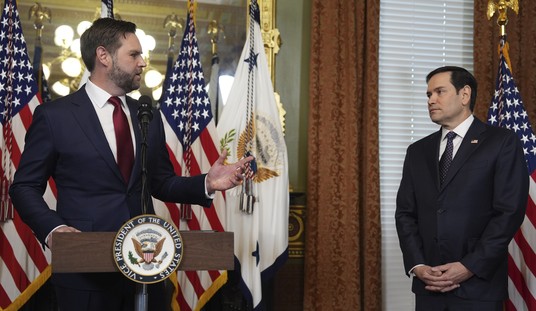Has David Blaine taught the American news media a new trick? The AP’s David Bauder notices that they have conducted a disappearing act with the war in Iraq. Suddenly, the subject has mostly vanished from coverage, although the upcoming five-year anniversary of the invasion will make it hard to ignore:
Remember the war in Iraq?
The question isn’t entirely facetious. The war has nearly vanished from TV screens over the past few months, replaced by stories about the fascinating presidential campaign and faltering economy.
Yet Americans continue to fight and die there, five years after the war started in March 2003. …
Statistics clearly illustrate the diminished attention. For the first 10 weeks of the year, the war accounted for 3 percent of television, newspaper and Internet stories in the Project for Excellence in Journalism’s survey of news coverage. During the same period in 2007, Iraq filled 23 percent of the news hole.
The difference is even more stark on cable news networks: 24 percent of the time spent on Iraq last year, just 1 percent this year.
Bauder blames the change on the “fatigue factor”. Supposedly, Americans have tired of the war and of hearing about it, and so the news networks have stopped covering it. The presidential campaign gave them an excuse to cut back on expensive war correspondence, and instead allowed them to cover a much less costly domestic story. It also allowed them to avoid the danger of reporting in a war zone.
All of that sounds reasonable, but Bauder manages to skip over another much more likely reason: the news got better, and the media doesn’t want to cover it. He provides evidence for this in his own analysis:
It’s possible to pinpoint the exact week that the switch turned off. The war averaged 30 minutes per week of coverage last year on the three network evening newscasts up until Gen. David Petraeus, commander of the U.S. forces, testified in September about the surge’s progress, according to news consultant Andrew Tyndall. In the last 15 weeks of the year, the broadcasts collectively spent four minutes per week on the war.
Bauder fails to note the political impact of Petraeus’ testimony. That week, Democrats practically queued up in front of television cameras to accuse Petraeus of playing politics, and Hillary Clinton accused him of lying to Congress. The unseemly nature of the attacks on a serving US military commander repulsed Americans, and the discovery that Petraeus was right made it even worse.
Ever since then, the media have sought to play down Iraq. They have pulled back coverage, not because of fatigue, but because they have been proven incorrect in their rush to portray it as a military failure. They have grudgingly noted the progress made in Iraq since last year’s change in strategy and tactics, and barely noticed when Iraq began passing the reconciliation legislation demanded by Congress this year and last.
The American public has noticed the improvement. Support for staying in Iraq until the successful completion of the mission has risen significantly. Even the Iraqis want us to remain in Iraq, if not in the current role for very much longer, in order to help fight terrorism and bolster their security. The media, which like the Democrats mostly bid on failure, seems churlishly determined not to report on the success for reasons other than “fatigue”.








Join the conversation as a VIP Member